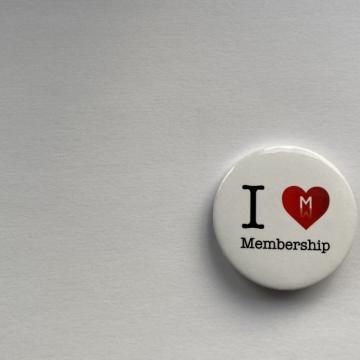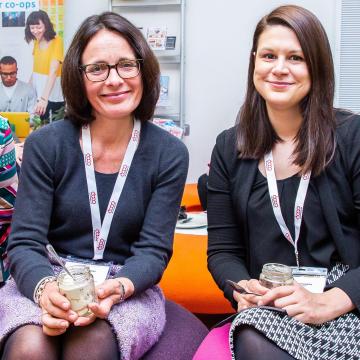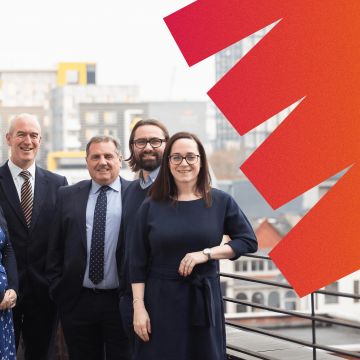The Big Switch Off – everything you should know
Blog post

Over the next few years the UK will see a big change in telecommunications with Openreach switching off the analogue network by 2025. Hear from Your Co-op Business Solutions about why you need to pay attention the biggest and most disruptive change to the telecoms market in its lifetime.
What is the Big Switch Off?
The Big Switch Off essentially means that all traditional copper telephone lines will no longer be available.
Most of the equipment used in current telephone exchanges is outdated and getting increasingly harder to maintain. This is why the decision has been made to go full fibre.
What does this mean for me?
If you want to continue to use telephone services after 2025, you must have a full fibre internet connection and an internet compatible telephone or device. Any existing internet connections will also need to be migrated to a full fibre service.
By December 2025, all existing telephone lines will be switched off. Anyone who has not moved to a (full fibre) internet based telephone service (VoIP) will not be able to make calls or use services which rely on analogue transmission.
The Big Switch Off will change how services are delivered:

What is VoIP?
VoIP stands for Voice Over Internet Protocol (see our full glossary of terms further down this page) and allows you to make and receive phone calls and video calls over the internet instead of traditional analogue landlines.
This is the telephone service which you will need to continue to make telephone calls after 2025, which will work over a full fibre broadband connection.
What is happening now?
Between now and September 2023 all telephone exchanges in the country will be placed into a state known as ‘stop sell’. This means they will no longer sell any more ‘legacy’ products such as ADSL Broadband, Superfast (FTTC) and new PSTN telephone lines. All current equipment and services will continue to work but you will not be able to buy or change any of the above products.
You will only be able to buy products such as Ultrafast/Full Fibre (FTTP) or SoGEA, which are broadband lines which don’t support calls. If you want to make calls you’ll need to have a VoIP service.
What help is available?
This is the biggest and most disruptive change to the telecoms market in its lifetime. There are a number of IT and business solutions companies available to support the transition.
Exclusive member offer
Your Co-op Business Solutions is offering Co-operatives UK members a free one hour expert telecoms consultation to help guide you through it every step of the way.
Discuss the process and how it can support and future proof your co-operative. Fill in the callback form on the Your Co-op Business Solutions Co-operatives UK member offers page or email [email protected] (include your Co-operatives UK membership number) to find out more.
- Don't know your membership number? Simply contact [email protected]
- Not a member of Co-operatives UK? Any co‑op or mutual can join Co‑operatives UK for as little as £100 plus VAT a year.
Other members offers
- View other exclusive Co-operatives UK member offers – including 10% off the Fairphone 4 and exclusive employee benefits.
- If your co-op would like to suggest an offer for Co-operatives UK members, please contact [email protected] with details.
Glossary of terms
- ADSL (Asymmetrical Digital Subscriber Line): a standard broadband service which is delivered completely over a copper line
- ATA (Analogue Terminal Adapter): this is a small device that connects between a router and a traditional analogue device such as a telephone or fax machine. It converts the normal analogue signal into a digital one so these devices can work across the internet, effectively making them VoIP enabled
- DECT (Digital enhanced cordless telecommunications): cordless phones that connect to a base station with up to 50 metres of indoor range, allowing the handset to be used in any room
- FTTC (Fibre to the Cabinet): more commonly known as Superfast Broadband, this is an internet connection that travels over a fibre connection from the local exchange to the PCP (Primary Cross Connection Point ie the green telecom cabinet on your street and then a standard copper line up to your building.
- FTTP (Fibre to the Premise): more commonly known as Ultrafast or Full Fibre this is an internet service that is delivered entirely over a fibre connection from the exchange right to the building. This offers speeds up to 1Gbps and will be the primary method of providing all telephony services after 2025
- LAN (Local Area Network): this is a way of describing all of the different devices in your home which are connected to your internet service, either via a physical cable to one of your router’s LAN ports or by WiFi
- PCP (Primary Cross Connection Point): this is the green telephone cabinet that you see in your street. It acts as a small exchange receiving the main telephone lines from the exchange and then connecting them out to each separate building
- PSTN (Public Switched Telephone Network): this is a general term for all of the copper-based infrastructure that currently supports the phone lines within the UK
- SoGEA (Single order Generic Ethernet Access): similar to FTTC this uses a mix of Fibre and Copper to provide an internet connection, however SoGEA does not use the analogue part of the line and so it cannot be used for traditional telephone calls without the use of a VoIP service
- VoIP (Voice over Internet Protocol): this is a generic term for providing telephone services using an internet connection rather than the traditional analogue signals that travel over copper lines. After 2025 when the analogue network is switched off this will be the only method to make telephone calls.


Exclusive member offers

Benefits of membership

